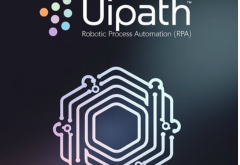Hitachi Vantara has launched the next generation Lumada DataOps Suite. The portfolio of data management and analytics software is designed to help businesses rapidly identify and utilize data to enhance customer experiences and provide a source of competitive advantage – from customer, operational and product intelligence to compliance and fraud management. The Lumada DataOps Suite helps lower the cost of data operations by using AI to place trusted data quickly into the hands of data analysts and business leaders.
Research by IDC suggests data workers waste as much as 50 percent of their time searching for and gaining access to data that may be locked in different data stores and diverse formats.
“Sourcing quality data for analytics is one of the main inhibitors for innovation in data-driven organizations but the adoption of DataOps methodologies can drastically improve workflow among teams,” said Stewart Bond, Research Director, IDC. “The ability to automate data management tasks with AI frees up data engineers to focus on more compelling initiatives, while simultaneously allowing self-service access for data consumers is a breakthrough in improving efficiency and collaboration.”
“The ability to provide the right data, in the right hands, at the right time is a simple formula to enable data-driven outcomes,” said Radhika Krishnan, Chief Product Officer at Hitachi Vantara. “The Lumada DataOps Suite transforms disparate data silos into one in which everyone can use a governed data fabric for innovation. Customers are enabled to tackle data complexity and reduce the time it takes to get access to data and to create valuable insights.”
Lumada is Hitachi’s advanced digital solutions and services for turning data into insights that drive digital innovation. The Lumada DataOps Suite is a modular software platform that features data integration, data analytics, data cataloging, and edge intelligence tools that help connect data, assets, and people to fuel innovation. Built with a modern cloud-native architecture, the Lumada DataOps Suite provides a scalable foundation for different Lumada software products which can be spun up and down across multiple cloud providers, increasing agility to manage data operations at scale while reducing cost through containerized deployments.
Providing a logical data fabric in a single, unified platform, the Lumada DataOps Suite consolidates data across silos, lines of business and applications to create a complete view of company-wide data. Leveraging AI to automate processes such as data discovery and cataloging lowers risk and decreases storage cost because data is intelligently labeled, governed and cross-referenced for version control and deduplication efforts. With time consuming manual tasks now automated, administrators can provide analytics teams with self-service access to comprehensive, trusted data for more informed decision making.
Trusted Data from the Edge to Multicloud
The Lumada DataOps Suite is powered by a new version of Pentaho, Hitachi’s enterprise data integration and analytics platform. The new Pentaho 9.2 offers full Microsoft Azure support, expanding customer choice of public clouds and improving data pipelines across providers. The platform’s open ecosystem now includes updated data store support for Cloudera Data Platform and HPE Ezmeral Data Fabric (MapR), allowing for greater flexibility and integration with existing ecosystems and analytics tools. Logging enhancements for Pentaho Business Analytics also improve installation cycles by bringing automated upgrades that lower maintenance costs and consolidate multiple licenses into one, easy-to-use ecosystem. Lumada Data Integration allows customers to seamlessly migrate to the DataOps Suite to take advantage of its comprehensive data management capabilities.
Incorporating ‘fingerprint’ tagging technology gained through the acquisition of Waterline Data in 2020, Lumada Data Catalog leverages AI to provide customers with faster data discovery, and better data rationalization for improved governance and provisioning. Lumada Data Catalog intelligently identifies and analyzes duplicate copies of data to reduce the overall cost of storage and risks associated with using partial copies for analysis, often resulting in inaccurate insights.
 Latest Technology News Today – Get Latest Information Technology Updates and Services Latest Technology News Today – Get Latest Information Technology Updates and Services
Latest Technology News Today – Get Latest Information Technology Updates and Services Latest Technology News Today – Get Latest Information Technology Updates and Services 









